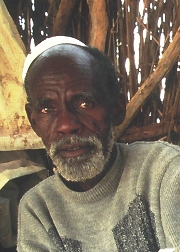Sudan rejects release of rebel figure from UN hospital
Feb 12, 2007 (KADUGLI) — Sudanese government has rejected the release of a Darfur rebel figure from a UN hospital where he is confined for the last eight months.

Jamous is 62 years old. Before joining the SLA, he was imprisoned three times by the Sudanese government without charge or trial. He first began experiencing pain in his abdomen during a six-month detention in Port Sudan in 2003. After his release, the pain has continued, incrementally, since then.
He now has pain in two areas of his abdomen, not merely the original one. The UN doctors recommended in December – a full two months ago – a biopsy they cannot perform in Kadugli. In spite of different treatments his state remains with no improvement.
Since last June Jamous was transported by the UN to Kadoguli, after his liberation from Minni Minawi jail in northern Darfur. Since, he is confined in a room because Sudanese government is opposed to his liberation.
According to the Darfur Peace Agreement, all the PoWs should be released but it seems that Khartoum “has rejected his liberation because they fear that Jamous may contradict its plans” informed sources said.
Earlier in February, some rebel commanders requested his liberation to participate in a reunification con conference for the Sudan Liberation Movement factions. They said “need his political experience” for the success of the meeting.
In the past three years, Jamous enabled hundreds of foreign journalists to visit rebel-controlled areas of Darfur in safety. He also facilitated the UN Commission of Inquiry and many other foreign visitors. His relief work for the SLA enabled UN agencies and NGOs to get relief safely to rebel-controlled areas and thereby enabled tens of thousands of Darfurians to stay in their villages and not to be forced to go into IDP camps.
(ST)
